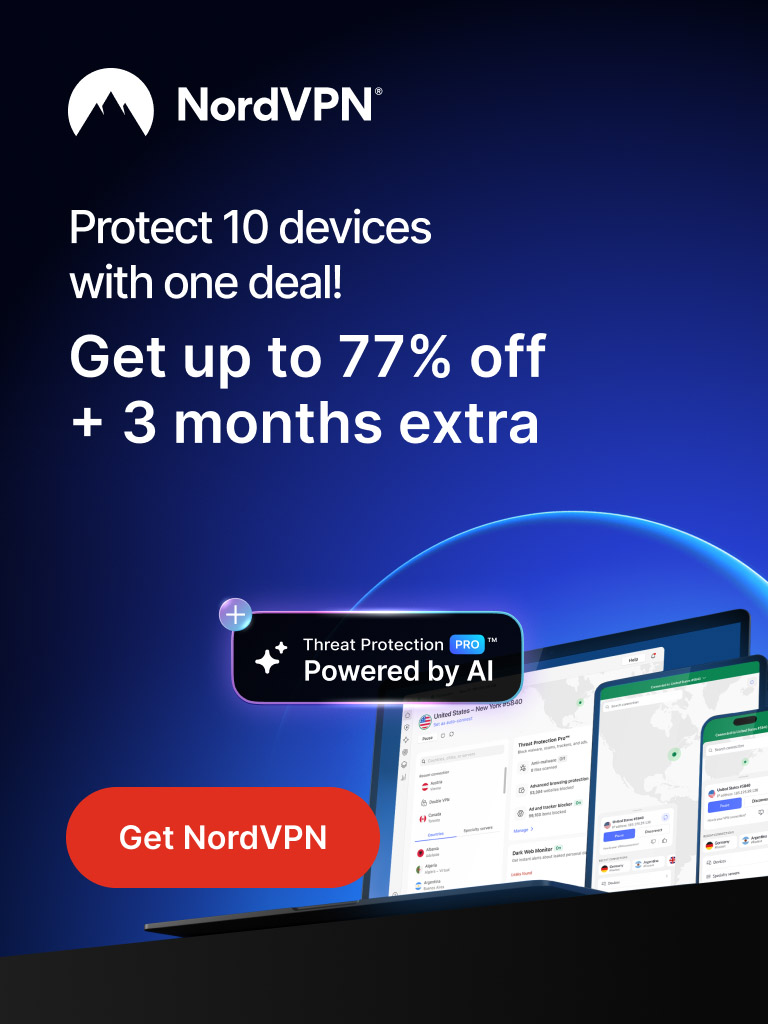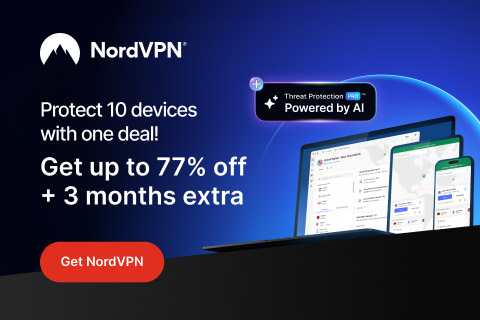Stay Private. Stay Secure. Stay Free.
Trusted by millions worldwide – protect your online life with #1 VPN
- ⚡ Blazing-fast speed on every server
- 🔒 Military-grade encryption & protection
- 🌍 Access content globally without limits
- 📱 Up to 10 devices with one account
Choosing a premium VPN can feel like standing in a huge electronics store with every gadget screaming “pick me!”—only this time the gadgets are servers, protocols, and fine-print privacy policies. Whether you want the freedom to stream shows from another country, lock down your banking on public Wi‑Fi, or simply buy the fastest, safest subscription you can trust, this long-read will walk you through the decisions, trade-offs, and winners. We’ll break things into friendly steps, explain the jargon, and highlight the best paid vpn 2024 options so you leave confident and ready to click “subscribe.”
You don’t need a PhD in networking to make a smart choice. Over the next several sections I’ll show you how to evaluate top premium vpn services, what features matter most, and how to pick a vpn subscription best suited to your needs. Think of this piece as both a buying guide and a practical handbook: I’ll explain why some providers cost more, how they earn that extra trust, and where compromises might be reasonable. By the end you’ll know which vpn for streaming premium content to try, which vpn with best security to consider for privacy-first use, and how to match price and performance without being swayed by hype.
Why Go Premium? The Case for Paid VPNs
Free VPNs can be tempting, but the reality is they often come with limits—slow speeds, crowded servers, data caps, intrusive ads, or worse, sketchy logging practices. A paid service usually means better infrastructure, faster connections, and stronger privacy protections. Plus, premium VPNs often provide dedicated features for streaming, gaming, and multi-device protection that free options simply can’t sustain.
Investing in a premium service isn’t just about speed or unblocking websites. It’s about accountability: reputable paid providers face regulatory and reputational pressure to maintain transparent logs, undergo audits, and offer clear refund policies. If you value consistent performance and less risk of hidden data harvesting, a paid plan is the practical choice. That said, premium doesn’t always mean perfect—so let’s dig into what differentiates the top premium vpn services.
What Makes a VPN “Premium”? Key Criteria
Picking the best paid vpn 2024 involves a few critical factors you shouldn’t ignore. Here’s what to prioritize and why.
Security and Privacy
A vpn with best security should include strong encryption (AES-256 is common), modern tunneling protocols (WireGuard, OpenVPN, or proprietary variants), an automatic kill switch, and a strict no-logs policy that can be audited or independently verified. Jurisdiction matters too—some countries have data retention laws that can undermine privacy claims.
Speed and Server Infrastructure
Speed is shaped by server quality, geographic spread, and load balancing. Premium services invest in thousands of servers and often use RAM-only servers (which don’t retain data after power loss) to improve both performance and privacy.
Streaming and Unblocking
If your main use is streaming, a vpn for streaming premium platforms needs frequent IP rotation, smart DNS options, and dedicated streaming servers for services like Netflix, Disney+, Hulu, Amazon Prime Video, and BBC iPlayer.
Ease of Use and Device Support
A premium provider should offer polished apps for Windows, macOS, iOS, Android, Linux, smart TVs, and routers. Browser extensions, split tunneling, and simultaneous connections are useful features that make a service feel premium.
Customer Support and Transparency
24/7 live chat, responsive email support, clear documentation, and independent audits are hallmarks of trustworthy providers. Refund windows and trial periods are also important—look for a money-back guarantee so you can test risk-free.
Snapshot Comparison: Top Premium VPN Services
Below is a compact table to help you compare several leading options at a glance. Use it as a starting map before diving deeper into individual strengths and trade-offs.
| Provider | Strengths | Typical Starting Price | Best For | Security Highlights |
|---|---|---|---|---|
| ExpressVPN | Fast, reliable, excellent streaming/unblocking | ~$8–$12/month | Streaming & general use | TrustedServer RAM-only, audited no-logs |
| NordVPN | Strong privacy features, many servers | ~$4–$12/month | Privacy + streaming | Double VPN, audited no-logs, WireGuard (NordLynx) |
| Surfshark | Unlimited devices, budget-friendly | ~$2–$12/month | Families & many devices | RAM-only servers, CleanWeb ad-blocker |
| Proton VPN | Privacy-first, strong jurisdiction (Switzerland) | ~$5–$12/month | Privacy-focused users | Open-source apps, audited, Secure Core |
| Mullvad | Simple pricing, anonymity-focused | €5/month flat | Privacy purists | No-logs, anonymous accounts, WireGuard |
| CyberGhost | Streaming-optimized servers, easy apps | ~$2–$13/month | Beginner streaming users | RAM-only, transparency reports |
Detailed Look: Reviews of Top Premium VPN Services
Here we explore several top premium vpn services in more detail so you can match features to your priorities.
ExpressVPN
ExpressVPN consistently ranks among the best paid vpn 2024 lineups for good reasons. It’s reliable at unblocking streaming platforms, easy to use, and offers strong privacy protections with its TrustedServer technology (RAM-only servers). The apps are polished across platforms and speeds are consistently high, making it a reliable pick for streaming and gaming. ExpressVPN tends toward a higher price point, but many users consider it worth the premium for the consistent, low-maintenance experience.
NordVPN
NordVPN blends strong privacy tools with fast connections. It offers specialty servers—Double VPN for extra privacy, Onion over VPN for Tor integration, and obfuscated servers for privacy in restricted regions. NordLynx (their WireGuard implementation) provides excellent speeds and low overhead. NordVPN is often featured on “best paid vpn 2024” lists because of its balance of security, features, and reasonable multi-year pricing.
Surfshark

If you need protection across many devices, Surfshark’s unlimited device policy is compelling. It’s budget-friendly, offers robust streaming support, and includes features like CleanWeb (ad and tracker blocking) and MultiHop. For households with many phones, tablets, and smart devices, Surfshark often represents the best value without compromising too much on speed or security.
Proton VPN
Proton VPN is built by the team behind ProtonMail and focuses on privacy and transparency. Based in Switzerland, it benefits from strong privacy laws and offers Secure Core routing that passes traffic through privacy-friendly countries before exiting. Proton VPN’s open-source clients and independent audits make it a strong choice for users who prioritize privacy and want a vpn with best security credentials.
Mullvad
Mullvad takes a minimalist, privacy-first approach: no account, no email required, and a flat monthly fee in euros. It supports WireGuard and has very clear privacy principles. If anonymity is your primary goal and you’re comfortable with minimal hand-holding, Mullvad might be the best paid vpn 2024 choice for you.
CyberGhost
CyberGhost is user-friendly and particularly good at making streaming simple: it labels servers optimized for specific streaming services. It’s a solid option for casual users who want clear choices for Netflix, Amazon Prime, or BBC iPlayer without diving into technical settings.
Step-by-Step: How to Choose the Best Premium VPN
Choosing a vpn subscription best suited to you can be done in a few clear steps. Follow this checklist and you’ll avoid common mistakes.
Step 1: Define Your Primary Use Case
Ask yourself: is the main goal privacy, streaming, gaming, torrenting, or travel use? If you want a vpn for streaming premium services, prioritize providers known for unblocking; if privacy is primary, aim for audited, no-logs providers.
Step 2: Check Jurisdiction and Logging Policy
Look for audited no-logs policies and favorable jurisdictions (Switzerland, Panama, British Virgin Islands, etc.). A vpn with best security will be transparent about what data it keeps and why.
Step 3: Test Speed and Server Coverage
Faster is generally better, but location matters. If you’ll connect to servers in a particular country, check provider server presence there. Trial periods and money-back guarantees let you test speeds without risk.
Step 4: Confirm Device Support and Connection Limits
Ensure the provider supports your devices and offers enough simultaneous connections (or unlimited, if that’s important).
Step 5: Evaluate Extra Features
Look for kill switch, split tunneling, multi-hop, ad/tracker blocking, and protocol choices like WireGuard. These add flexibility and security.
Step 6: Compare Pricing and Refund Policy
Long-term plans often reduce monthly cost, but make sure there’s a 30-day refund window or a free trial to test the vpn subscription best for you. Consider promotional offers but read renewal rates.
Step 7: Read Recent Reviews and Transparency Reports
Providers change—servers are added, policies updated. Check recent reviews and provider transparency or audit reports to confirm claims still hold.
Features Explained: What to Look For in Detail
Let’s unpack the technical features that make a vpn premium—but in plain language.
- Encryption: AES-256 is standard strong encryption. It scrambles your data so eavesdroppers can’t read it.
- Protocols: WireGuard is modern and fast; OpenVPN is mature and flexible; some providers have custom protocols (e.g., NordLynx) built on WireGuard for speed and privacy.
- Kill Switch: Automatically cuts your internet if the VPN disconnects to prevent data leaks.
- No-logs policy: Means the provider doesn’t record your activity. Independent audits add credibility.
- RAM-only servers: These can’t store data persistently, increasing privacy in the event of seizure.
- Obfuscation: Hides VPN traffic to work in restrictive countries or networks that block VPNs.
- Split Tunneling: Lets you route some apps through VPN while others use your regular connection.
Why Streaming Needs a Different Focus: VPN for Streaming Premium Platforms
If your main goal is to access region-locked content, you want a vpn for streaming premium services that reliably unblocks geo-restricted libraries. That means frequent IP rotation, dedicated streaming servers, and good speed.
Practical Tips for Streaming
- Choose a provider with a history of unblocking Netflix and other major services. Check recent user reports—this can change frequently.
- Use servers labeled for streaming when available; they’re optimized for unblocking and speed.
- Try different server locations within the same country if one server is blocked; providers often update IPs when blocks occur.
- Consider Smart DNS features for streaming on devices that don’t natively support VPNs, like some smart TVs and game consoles.
Privacy-First Choices: Which VPN Has the Best Security?
When privacy is your top concern, you’re looking for a vpn with best security and transparency. Factors to weigh include independent audits, open-source client code, RAM-only servers, and the provider’s jurisdiction.
Security-Focused Providers
Providers like Proton VPN, Mullvad, and NordVPN emphasize privacy. Proton VPN benefits from being based in Switzerland and provides Secure Core servers. Mullvad’s anonymous, account-free model is a standout for anonymity. NordVPN and ExpressVPN have both undergone independent audits and implemented RAM-only servers to reinforce privacy claims.
Look for These Security Signals
- Independent third-party audits of code or policies
- Open-source apps or client components
- Clear and minimal data collection practices
- RAM-only server infrastructure
- Strong encryption and modern protocols
How Much Should You Pay? Understanding VPN Pricing and Subscription Options
VPN pricing varies widely. Monthly plans tend to be the most expensive, long-term plans offer the best monthly price, and providers often run promotions. When considering a vpn subscription best matched to your budget, weigh the total cost over the period you intend to use it, including renewal rates.
Common Pricing Models
- Monthly subscriptions: Flexible, usually highest cost per month.
- Annual or multi-year plans: Lower monthly-equivalent cost but requires more upfront payment.
- Flat-rate pricing: Some providers (e.g., Mullvad) charge a simple flat monthly fee.
- Bundle offers: Some VPNs are bundled with other privacy tools (password managers, identity protection).
Money-Back Guarantees and Trials
A 30-day money-back guarantee is common among top premium vpn services—this is invaluable because it lets you test streaming, speed, and device compatibility risk-free.
Setup: How to Install and Configure a Premium VPN Step by Step
Here’s a typical process to get started, simplified for any user.
- Choose the provider and plan that fit your needs. Use trial or money-back guarantees when possible.
- Create an account and complete payment. Pro privacy providers may offer anonymous payment options (crypto, cash, vouchers).
- Download the app for your device from the provider’s official site or the official app store. Avoid third-party app downloads.
- Install and sign in, then choose a protocol (WireGuard for speed, OpenVPN for flexibility) if the app offers it.
- Enable the kill switch and auto-connect if you’ll use public Wi‑Fi. Consider split tunneling for specific apps.
- Test speeds and try streaming sites you care about. If issues arise, try a different server or contact support.
Common Pitfalls and How to Avoid Them
Even with premium services, you can make mistakes. Avoid these common traps.
- Assuming “no-logs” without proof—look for audits or transparency reports.
- Buying the cheapest plan without checking features—some low-cost providers skimp on server quality or security.
- Failing to test streaming needs during the trial—unblocking can be inconsistent, so test before committing.
- Using weak passwords or reusing login info—treat your VPN account like any sensitive account.
- Overlooking jurisdiction—some providers may be subject to data request laws depending on their home country.
Real-World Use Cases: Matching Provider to Need

Below are quick suggestions based on common user priorities:
- Best for streaming and uncomplicated daily use: ExpressVPN or CyberGhost
- Best for privacy and security audits: Proton VPN, NordVPN
- Best value for many devices: Surfshark
- Best for anonymity and simplicity: Mullvad
- Best for transparency and open-source fans: Proton VPN
Frequently Asked Questions
Does a more expensive VPN always mean better protection?
Not necessarily. Price often reflects ease-of-use, customer support, and brand reputation, but many mid-priced options provide excellent security. Look for concrete signals—audits, independent reviews, and technical features—rather than price alone.
Can a VPN slow down my internet?
Yes—encryption and extra hops can add latency. Premium services reduce that effect with fast servers, optimized protocols like WireGuard, and good server distribution.
Are all VPNs able to unblock streaming sites?
No. Streaming services actively block many VPN IP addresses. Some top premium vpn services continually update their IPs and dedicate streaming servers; others cannot reliably unblock popular platforms.
Is it legal to use a VPN?
In most countries, yes—using a VPN is legal. However, using a VPN to commit illegal acts remains illegal. Always follow local laws and service terms.
How many devices can I protect with one subscription?
Connection limits vary: some providers limit to 5–10 devices, while others (like Surfshark) allow unlimited simultaneous connections.
Practical Checklist Before You Subscribe
Use this quick checklist to confirm your chosen vpn subscription best fits your needs.
- Does it have an audited no-logs policy?
- Is the jurisdiction privacy-friendly?
- Are there apps for all your devices?
- Does it support modern protocols (WireGuard) and offer a kill switch?
- Is there a money-back guarantee or trial?
- Does it have a proven track record of unblocking streaming services you care about?
- Are pricing and renewal terms clear?
Final Thoughts: Balancing Price, Privacy, and Performance
Choosing the best paid vpn 2024 requires balancing your primary needs—privacy, streaming, or device coverage—against budget and trust signals. The top premium vpn services each make different trade-offs: some emphasize speed and unblocking, others emphasize airtight privacy. If you need a vpn for streaming premium content, prioritize providers known for consistent unblocking and speed. If privacy is non-negotiable, choose a vpn with independent audits, RAM-only servers, and a jurisdiction that supports strong privacy laws. For families or households with many devices, consider a vpn subscription best offering unlimited connections.
Remember: a good VPN is a tool, not a cure-all. Combine it with secure passwords, two-factor authentication, and safe browsing habits to get the most protection. Try services with money-back guarantees to find the best fit—practical testing is often the fastest way to discover which provider delivers real-world value for your needs.
Conclusion
If you’re hunting for the best premium VPN, start by defining whether speed, streaming, or privacy matters most to you, then use independent audits, jurisdiction, server infrastructure, and trial periods to judge providers; among the top premium vpn services, ExpressVPN, NordVPN, Surfshark, Proton VPN, and Mullvad each shine in different ways—so pick the vpn subscription best matched to your priorities (and test it risk-free) to get the fastest, most secure, and most reliable experience for your needs.

